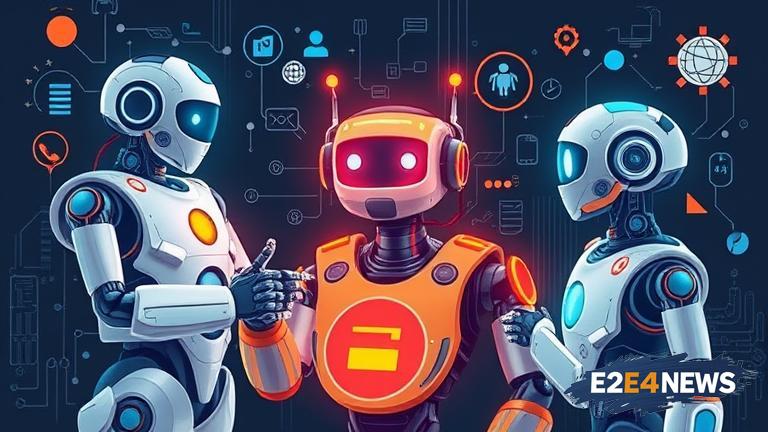The advent of artificial intelligence has led to the development of sophisticated chatbots that are revolutionizing the customer service landscape. These AI-powered chatbots are capable of understanding and responding to customer inquiries, providing personalized support and resolving issues in a timely and efficient manner. With the ability to learn and adapt to customer interactions, chatbots are becoming increasingly effective in handling complex customer service tasks. Moreover, chatbots are available 24/7, allowing customers to receive support at any time, regardless of their location. This has led to a significant reduction in wait times and an improvement in overall customer satisfaction. Furthermore, chatbots are able to handle multiple customer inquiries simultaneously, making them a valuable asset for businesses that receive a high volume of customer support requests. In addition to providing customer support, chatbots are also being used to help customers with transactions, such as making payments and booking appointments. The use of chatbots is not limited to customer-facing applications, as they are also being used internally to help employees with tasks such as data entry and document processing. The integration of chatbots with other technologies, such as natural language processing and machine learning, is further enhancing their capabilities. As a result, chatbots are becoming an essential tool for businesses looking to improve their customer service and increase operational efficiency. The benefits of using chatbots are numerous, including reduced labor costs, improved response times, and enhanced customer experiences. However, there are also challenges associated with implementing chatbots, such as ensuring their accuracy and reliability. To overcome these challenges, businesses must invest in the development and training of their chatbots, as well as ensure that they are properly integrated with existing systems and processes. Despite these challenges, the use of chatbots is expected to continue to grow, with many experts predicting that they will become a standard feature of customer service in the near future. As the technology continues to evolve, we can expect to see even more advanced chatbots that are capable of handling complex tasks and providing personalized support to customers. In conclusion, AI-powered chatbots are transforming the customer service landscape, providing businesses with a powerful tool to improve their customer experiences and increase operational efficiency. With their ability to learn and adapt to customer interactions, chatbots are becoming an essential asset for businesses looking to stay ahead of the competition. The future of customer service is likely to be shaped by the continued development and implementation of chatbots, and businesses that fail to adapt to this trend risk being left behind.
